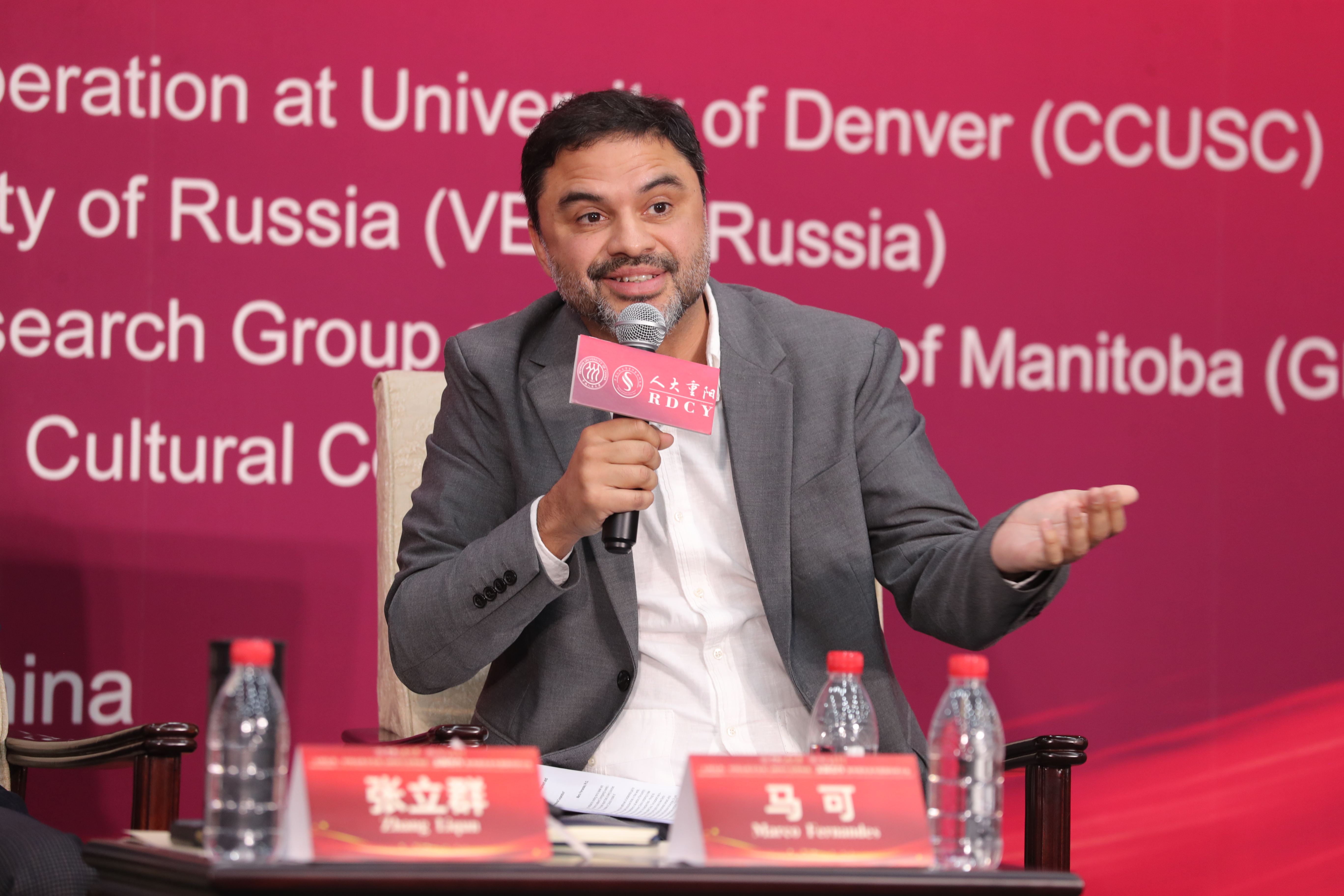‘Overcapacity’an Excuse to Slap Tariffs on Chinese Products: Expert

Marco Fernandes,?a Brazilian?researcher at the Tricontinental Institute for Social Research,?delivered?a?speech?at an international symposium in Beijing,?held by?the?Chongyang Institute for Financial Studies at Renmin University of China.?(PHOTO:?COURTESY?PHOTO)
By Marco Fernandes
China has reaffirmed a fundamental goal in the coming decades: to develop new quality productive forces, in other words, to raise the level of technological and human development in all sectors of the country's economy.
I don't think it's a coincidence that at a time when China is preparing to take?a new leap in the quality of its industrial production, the collective West – through its powerful media – is creating new accusations?against China. The current buzzword now is overcapacity. China is accused of overproducing some goods, mainly new electric vehicles (NEVs) and renewable energy equipment?and facing low domestic demand, which means the country needs to?seek even more foreign markets to sell its production at lower?prices.
However, the accusation of “overcapacity”reveals the psychology of the West. That is,?"We in the collective West can no longer compete with China, so we're going to invent an excuse to slap tariffs on their products."
The countries of Southeast Asia have been accelerating the pace of their industrial development,?thanks in large part to the relocation of Chinese factories and Chinese investment in the region.?But in Latin America and Africa, the two continents?have generally suffered a process of deindustrialization in recent decades. This has had serious consequences for economies in the Global South. So,?Brazil’s President Lula, for example, has made re-industrialization the?main task of his government.?
China?offers opportunities for the Global South.?After substantial Chinese investments in infrastructure through the Belt and Road Initiative (BRI), recent developments indicate a higher level of cooperation between China and developing countries. For instance, at the China-Africa Leaders' Dialogue in August 2023, African leaders expressed their appreciation for China's efforts over the past two decades to promote infrastructure on the continent,?but also called on China to shift its investment focus from infrastructure to industrialization.
Meanwhile, numerous partnerships between Chinese state-owned and private companies in?Global South countries have been established recently, many of them related to local processing of high-demand minerals,?or the production of electric vehicles.
For example, China is investing billions of dollars in lithium processing plants in Bolivia, another lithium plant and one mega steel plant in Zimbabwe, nickel processing plants in Indonesia, and a hub of electric vehicle factories in Morocco. Mexico and Brazil are also now destinations for?Chinese NEV factories.?
There are high expectations that regional initiatives like the BRI, the expanded BRICS-10, and the Shanghai Cooperation Organization can serve as levers to strengthen this process, even though they face opposition from Western powers. We need to deepen this kind of cooperation.
Marco Fernandes is a Brazilian researcher at the Tricontinental Institute for Social Research, a network of research institutes in the Global South. Fernandes gave the above talk?at an international symposium in Beijing,?held by the Chongyang Institute for Financial Studies at Renmin University of China.






